-
 Bitcoin
Bitcoin $113400
-0.78% -
 Ethereum
Ethereum $3572
-2.11% -
 XRP
XRP $2.908
-4.07% -
 Tether USDt
Tether USDt $0.9999
0.00% -
 BNB
BNB $751.0
-1.27% -
 Solana
Solana $162.3
-3.12% -
 USDC
USDC $0.9998
-0.01% -
 TRON
TRON $0.3319
-0.54% -
 Dogecoin
Dogecoin $0.1963
-4.68% -
 Cardano
Cardano $0.7128
-4.47% -
 Hyperliquid
Hyperliquid $37.14
-2.57% -
 Stellar
Stellar $0.3858
-4.90% -
 Sui
Sui $3.341
-3.86% -
 Bitcoin Cash
Bitcoin Cash $554.6
-1.94% -
 Chainlink
Chainlink $16.10
-3.77% -
 Hedera
Hedera $0.2338
-4.24% -
 Ethena USDe
Ethena USDe $1.001
0.00% -
 Avalanche
Avalanche $21.66
-4.72% -
 Litecoin
Litecoin $117.8
-2.92% -
 UNUS SED LEO
UNUS SED LEO $9.002
0.08% -
 Toncoin
Toncoin $3.156
-6.13% -
 Shiba Inu
Shiba Inu $0.00001192
-3.09% -
 Uniswap
Uniswap $9.411
-3.25% -
 Polkadot
Polkadot $3.562
-2.50% -
 Dai
Dai $0.9999
0.00% -
 Monero
Monero $288.9
-4.05% -
 Bitget Token
Bitget Token $4.274
-1.88% -
 Cronos
Cronos $0.1362
-1.79% -
 Pepe
Pepe $0.0...09999
-4.55% -
 Aave
Aave $252.7
-2.97%
Can conditional orders be set for contract trading? What are the triggering rules?
Conditional orders in contract trading allow automated trade execution based on set conditions, enhancing risk management on platforms like Binance and Bybit.
Apr 29, 2025 at 03:01 pm
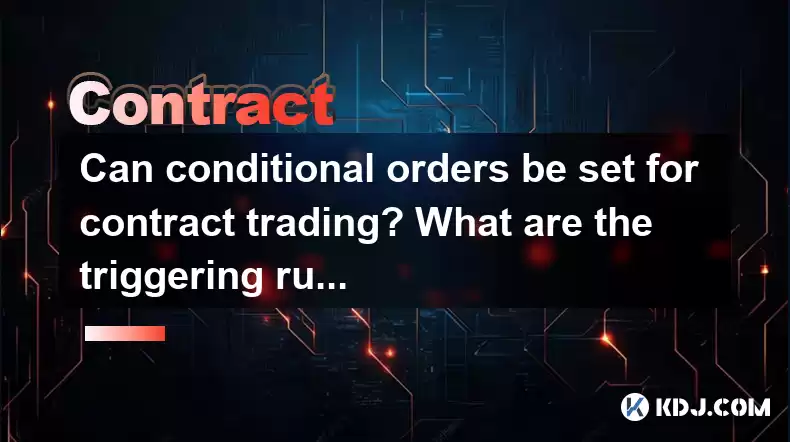
Introduction to Conditional Orders in Contract Trading
In the world of cryptocurrency trading, contract trading has become increasingly popular due to its potential for high returns. One of the tools that traders use to manage their positions more effectively is conditional orders. These orders allow traders to set specific conditions under which their trades will be executed automatically. In this article, we will explore whether conditional orders can be set for contract trading and delve into the triggering rules that govern them.
What are Conditional Orders?
Conditional orders, also known as contingent orders, are a type of order that only executes if certain predefined conditions are met. In the context of contract trading, these orders are particularly useful as they allow traders to manage their positions without needing to monitor the market constantly. Types of conditional orders include stop-loss orders, take-profit orders, and trailing stop orders.
Can Conditional Orders be Set for Contract Trading?
Yes, conditional orders can indeed be set for contract trading. Most reputable cryptocurrency exchanges that offer contract trading, such as Binance, Bybit, and OKEx, support the use of conditional orders. These orders can be set up directly through the trading interface of the exchange, allowing traders to automate their trading strategies and manage risks more effectively.
How to Set Up Conditional Orders for Contract Trading
Setting up conditional orders for contract trading involves a few straightforward steps. Here is a detailed guide on how to do it:
- Navigate to the Contract Trading Section: Log into your chosen exchange and go to the contract trading section.
- Select the Contract: Choose the specific contract you want to trade. This could be a perpetual contract or a futures contract.
- Access the Order Interface: Click on the order entry section where you can input your trade details.
- Choose Conditional Order: Look for an option to set a conditional order. This might be labeled as 'Conditional Order', 'Trigger Order', or something similar.
- Set the Trigger Conditions: Define the conditions under which the order will be triggered. This could be a specific price level or a percentage change in the asset's value.
- Specify the Order Details: Once the conditions are set, input the details of the order you want to execute, such as the quantity and the price.
- Review and Confirm: Double-check all the details and confirm the order. The conditional order will now be active and will execute automatically if the specified conditions are met.
Triggering Rules for Conditional Orders
The triggering rules for conditional orders are crucial as they determine when the order will be executed. Here are the common triggering rules for different types of conditional orders:
- Stop-Loss Orders: These orders are triggered when the price of the contract reaches or falls below a specified level. For example, if you set a stop-loss order at $50,000 for a Bitcoin perpetual contract, the order will be triggered if the price hits $50,000 or lower.
- Take-Profit Orders: These are the opposite of stop-loss orders and are triggered when the price reaches or exceeds a specified level. If you set a take-profit order at $60,000 for the same Bitcoin contract, the order will be triggered when the price reaches $60,000 or higher.
- Trailing Stop Orders: These orders are more dynamic and are triggered based on a percentage change in the asset's price. For instance, if you set a trailing stop order with a 5% trail, the order will be triggered if the price drops by 5% from its highest point since the order was set.
Importance of Conditional Orders in Contract Trading
Conditional orders play a vital role in contract trading by allowing traders to manage their risks and lock in profits more effectively. They are especially useful in the volatile cryptocurrency markets, where prices can fluctuate dramatically in a short period. By setting up conditional orders, traders can ensure that their positions are protected even if they are not actively monitoring the market.
Practical Examples of Conditional Orders in Contract Trading
To better understand how conditional orders work in contract trading, let's look at a couple of practical examples:
- Example 1: Stop-Loss Order: Suppose you enter a long position on an Ethereum futures contract at $3,000. To protect your investment, you set a stop-loss order at $2,800. If the price of Ethereum drops to $2,800, your stop-loss order will be triggered, and your position will be automatically closed to limit your losses.
- Example 2: Take-Profit Order: In another scenario, you enter a short position on a Bitcoin perpetual contract at $55,000. You set a take-profit order at $53,000. If the price of Bitcoin falls to $53,000, your take-profit order will be triggered, and your position will be closed, allowing you to realize your profits.
Frequently Asked Questions
Q1: Can conditional orders be canceled or modified once they are set?
Yes, conditional orders can usually be canceled or modified before they are triggered. To do this, navigate to the order section on your exchange, find the conditional order you wish to modify or cancel, and follow the platform's instructions to make the necessary changes.
Q2: Are there any fees associated with setting up conditional orders for contract trading?
Fees for setting up conditional orders vary by exchange. Some platforms may charge a small fee for placing conditional orders, while others might include them as part of their standard trading fees. It's important to check the fee structure of your chosen exchange to understand any potential costs.
Q3: How accurate are the triggering rules for conditional orders?
The accuracy of triggering rules depends on the exchange's technology and market conditions. Most reputable exchanges have robust systems in place to ensure that conditional orders are triggered accurately. However, during periods of high volatility or technical issues, there might be slight delays or discrepancies.
Q4: Can conditional orders be used for both long and short positions in contract trading?
Yes, conditional orders can be used for both long and short positions in contract trading. Whether you are betting on the price of a contract going up (long) or down (short), you can set up conditional orders to manage your positions effectively.
Disclaimer:info@kdj.com
The information provided is not trading advice. kdj.com does not assume any responsibility for any investments made based on the information provided in this article. Cryptocurrencies are highly volatile and it is highly recommended that you invest with caution after thorough research!
If you believe that the content used on this website infringes your copyright, please contact us immediately (info@kdj.com) and we will delete it promptly.
- Coinbase, Financing, and the Crypto Market: Navigating Choppy Waters in NYC Style
- 2025-08-06 12:50:11
- Bitcoin in Indonesia: Crypto Education and Economic Strategy
- 2025-08-06 12:50:11
- DeriW Mainnet: Zero Gas Fees Revolutionize On-Chain Derivatives Trading
- 2025-08-06 10:30:11
- IOTA, Cloud Mining, and Eco-Friendly Crypto: A New York Investor's Take
- 2025-08-06 10:30:11
- Kaspa (KAS) Price Prediction: August 6 - Will It Break Free?
- 2025-08-06 10:50:12
- Pension Funds, Bitcoin ETFs, and Exposure: A New Era of Institutional Crypto Adoption
- 2025-08-06 12:55:12
Related knowledge
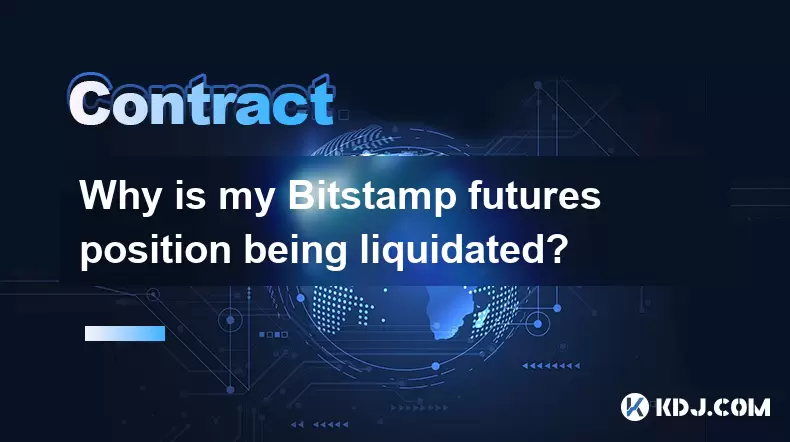
Why is my Bitstamp futures position being liquidated?
Jul 23,2025 at 11:08am
Understanding Futures Liquidation on BitstampFutures trading on Bitstamp involves borrowing funds to open leveraged positions, which amplifies both po...
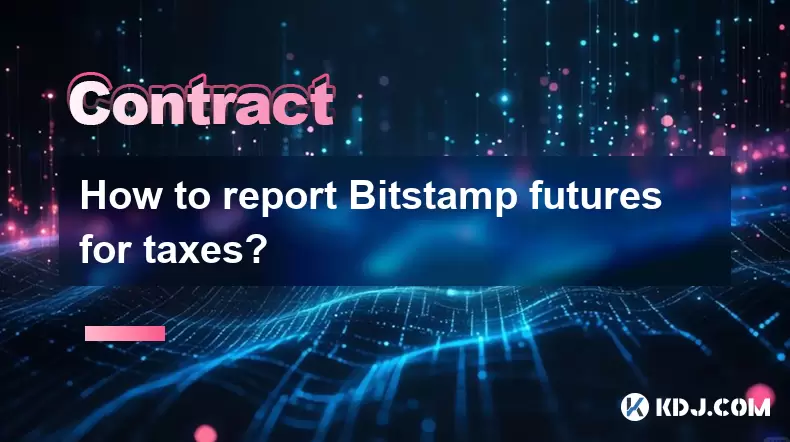
How to report Bitstamp futures for taxes?
Jul 30,2025 at 08:35am
Understanding Bitstamp Futures and Taxable EventsWhen trading Bitstamp futures, it’s essential to recognize that these financial instruments are treat...
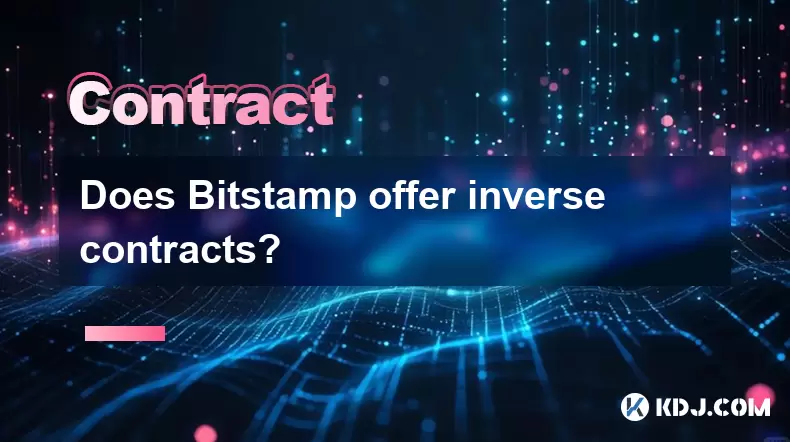
Does Bitstamp offer inverse contracts?
Jul 23,2025 at 01:28pm
Understanding Inverse Contracts in Cryptocurrency TradingIn the realm of cryptocurrency derivatives, inverse contracts are a specific type of futures ...
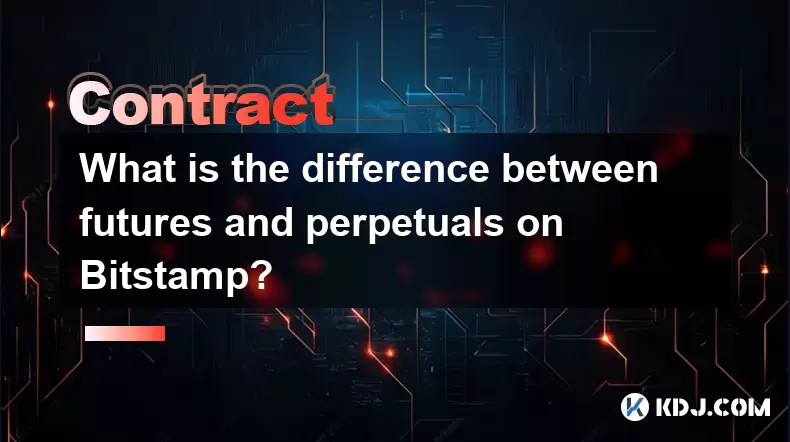
What is the difference between futures and perpetuals on Bitstamp?
Jul 27,2025 at 05:08am
Understanding Futures Contracts on BitstampFutures contracts on Bitstamp are financial derivatives that allow traders to speculate on the future price...
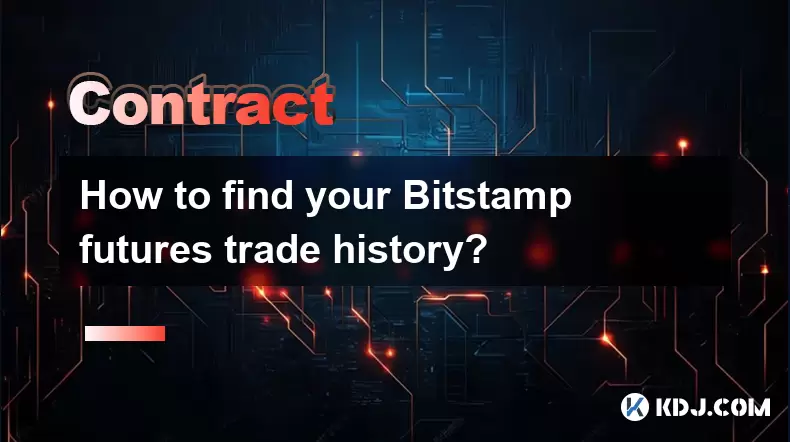
How to find your Bitstamp futures trade history?
Jul 23,2025 at 08:07am
Understanding Bitstamp and Futures Trading AvailabilityAs of the current state of Bitstamp’s service offerings, it is critical to clarify that Bitstam...
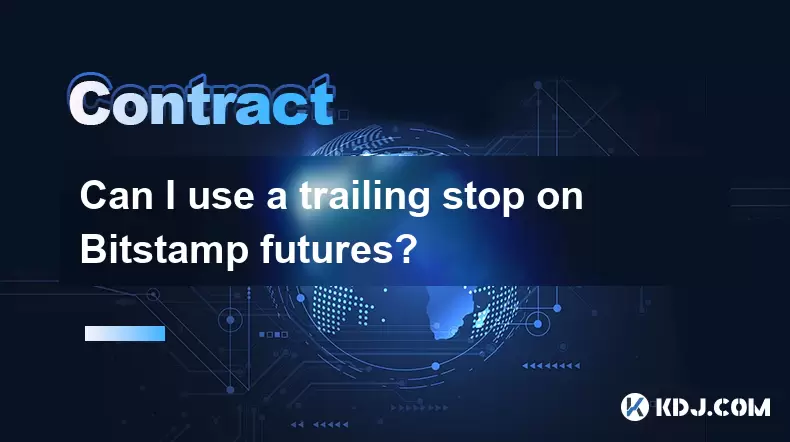
Can I use a trailing stop on Bitstamp futures?
Jul 23,2025 at 01:42pm
Understanding Trailing Stops in Cryptocurrency TradingA trailing stop is a dynamic type of stop-loss order that adjusts automatically as the price of ...

Why is my Bitstamp futures position being liquidated?
Jul 23,2025 at 11:08am
Understanding Futures Liquidation on BitstampFutures trading on Bitstamp involves borrowing funds to open leveraged positions, which amplifies both po...

How to report Bitstamp futures for taxes?
Jul 30,2025 at 08:35am
Understanding Bitstamp Futures and Taxable EventsWhen trading Bitstamp futures, it’s essential to recognize that these financial instruments are treat...

Does Bitstamp offer inverse contracts?
Jul 23,2025 at 01:28pm
Understanding Inverse Contracts in Cryptocurrency TradingIn the realm of cryptocurrency derivatives, inverse contracts are a specific type of futures ...

What is the difference between futures and perpetuals on Bitstamp?
Jul 27,2025 at 05:08am
Understanding Futures Contracts on BitstampFutures contracts on Bitstamp are financial derivatives that allow traders to speculate on the future price...

How to find your Bitstamp futures trade history?
Jul 23,2025 at 08:07am
Understanding Bitstamp and Futures Trading AvailabilityAs of the current state of Bitstamp’s service offerings, it is critical to clarify that Bitstam...

Can I use a trailing stop on Bitstamp futures?
Jul 23,2025 at 01:42pm
Understanding Trailing Stops in Cryptocurrency TradingA trailing stop is a dynamic type of stop-loss order that adjusts automatically as the price of ...
See all articles

























































































